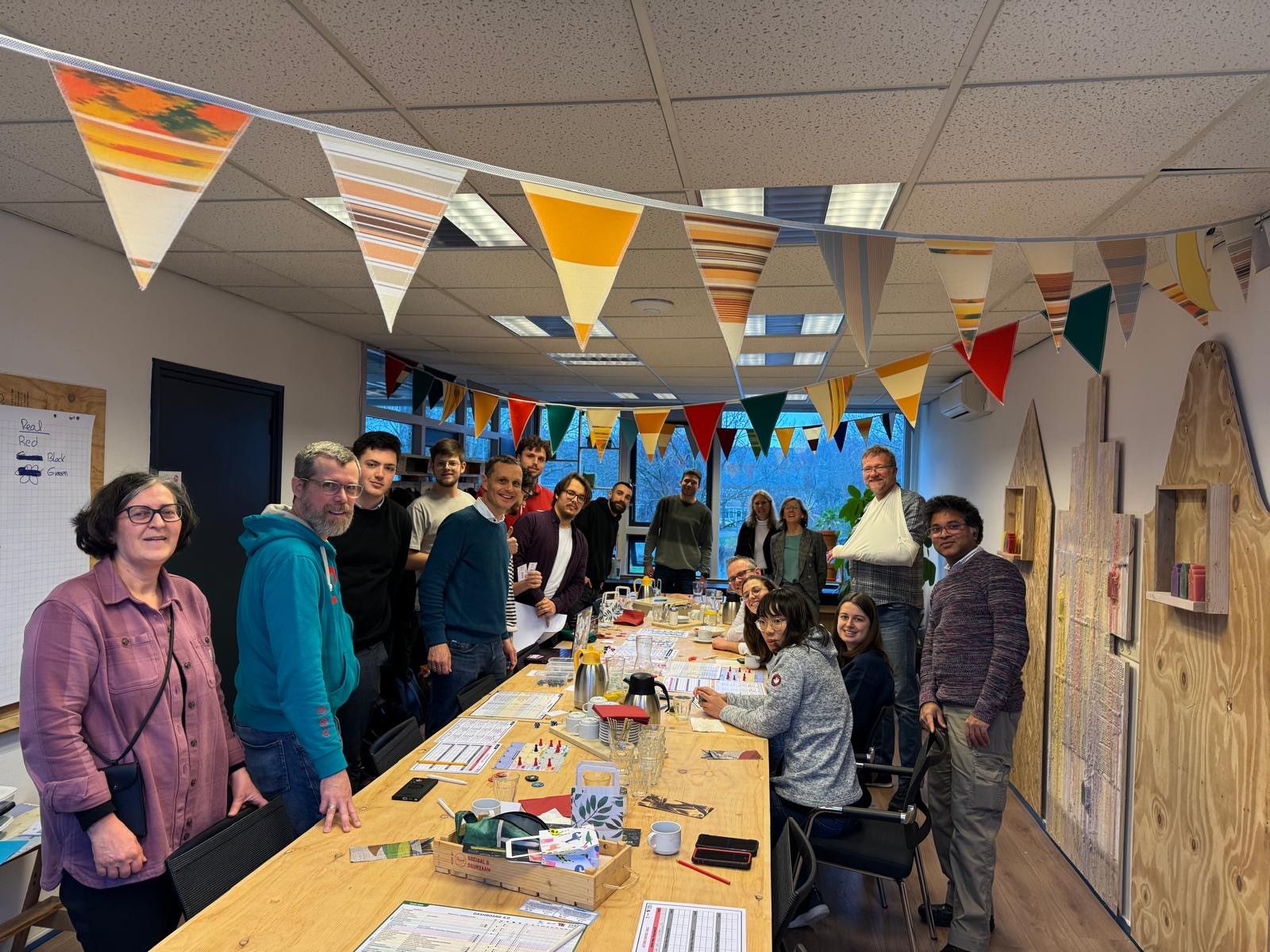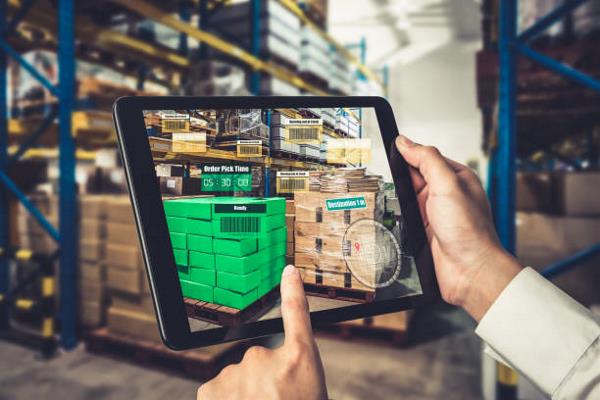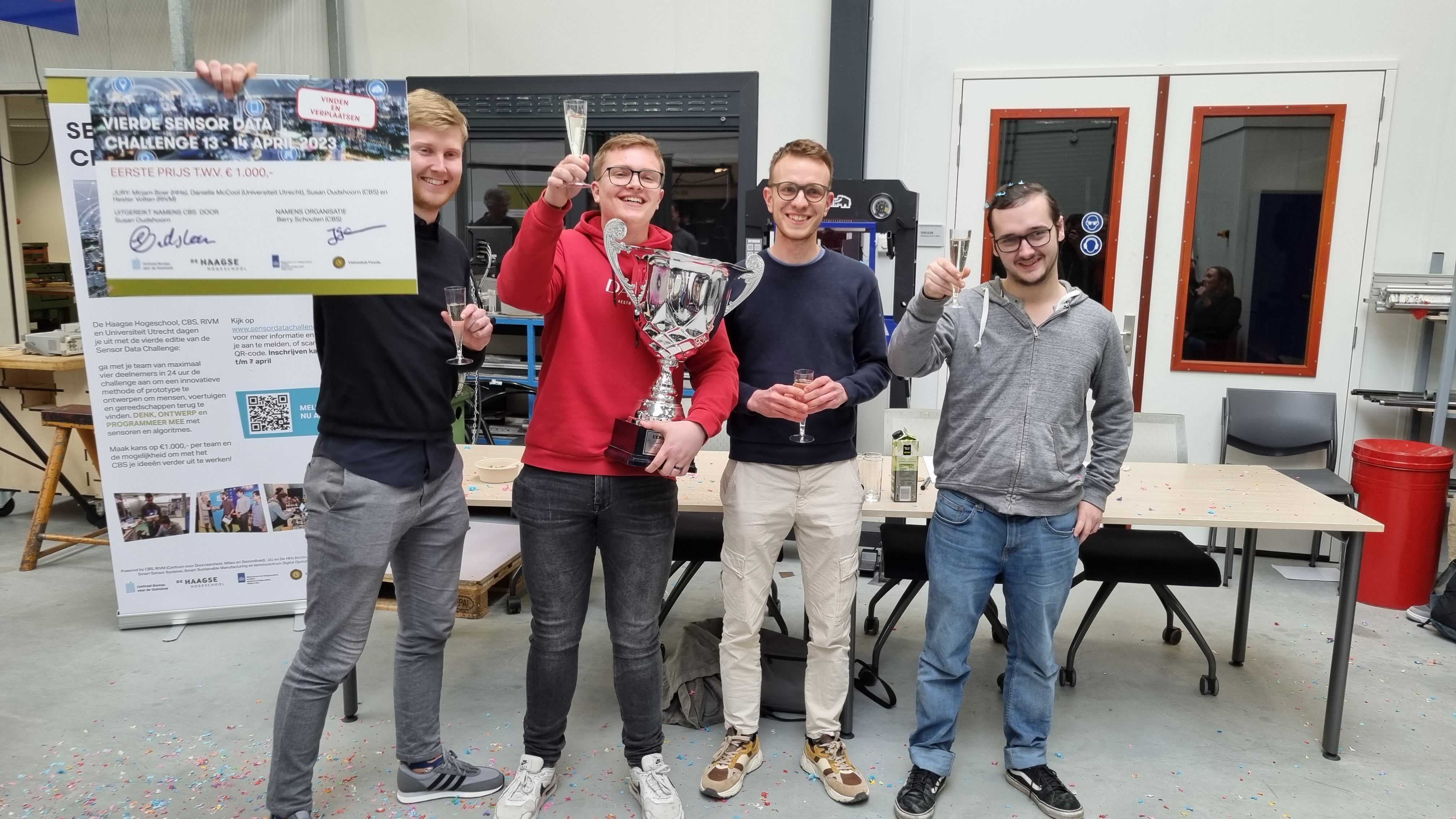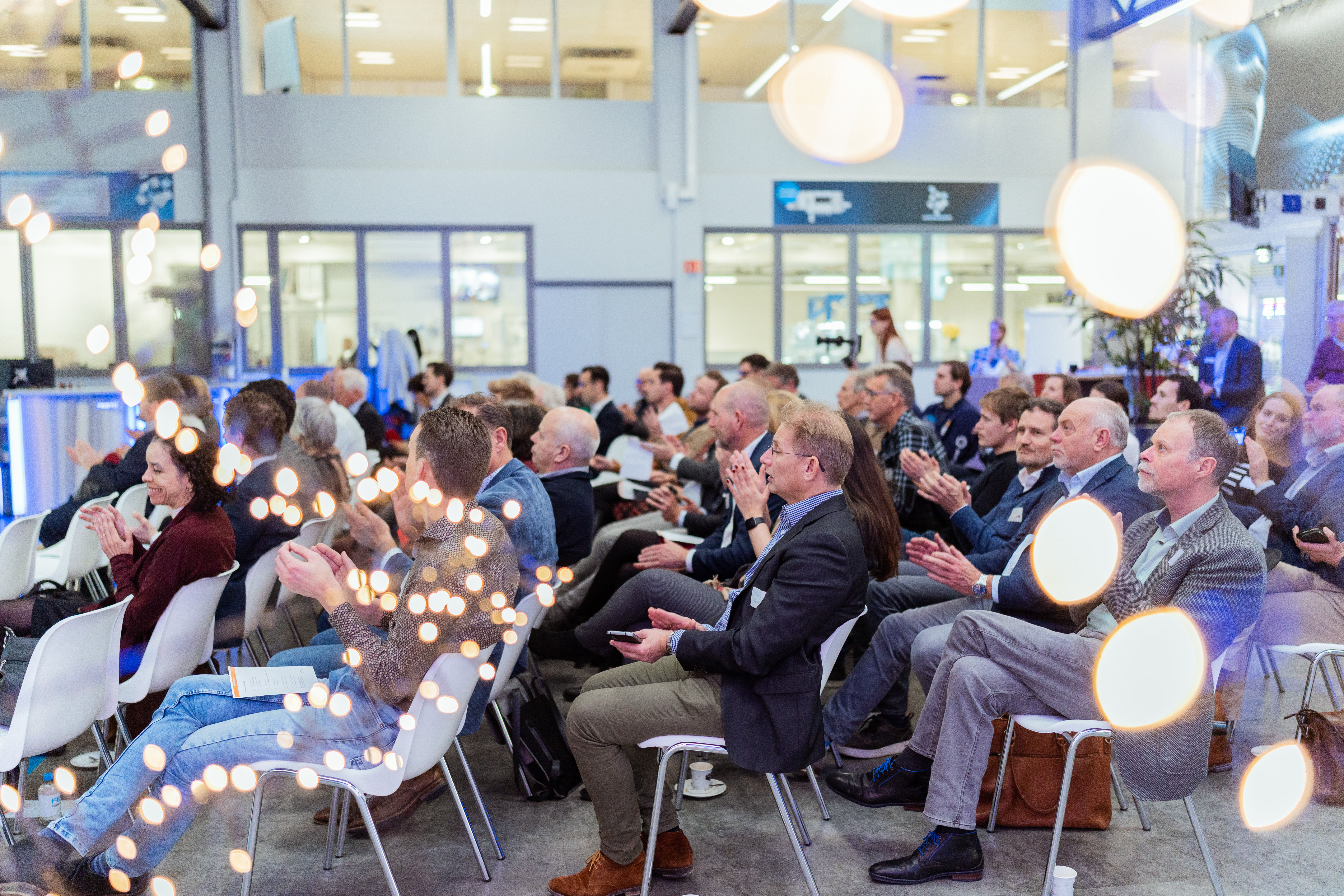Smart Sustainable Manufacturing
Centre of Expertise Digital Operations & Finance
Introduction
How do you deliver products like heat pumps, satellites or sensors with a ‘sustainability passport’?
How can manufacturers contribute to smart products that are as sustainable as possible, measured over the course of their lifespan? Can production lines become self-learning, and for example generate assembly instructions for new products independently, or suggest their own quality tests? How do you switch from being a supplier of airco-unit hardware to being a supplier of ‘airco-as-a-service’?
About the research group
Digitisation and automation allow production systems to become ‘smart’. This enables the regional production of complex products at an acceptable cost level. With the help of sensors, the usage and ‘health’ of a product can be monitored from ‘cradle-to-grave’. This makes it possible to predict the required maintenance of a product, and also gives manufacturers the opportunity to extend the lifetime of a product and make it more sustainable.
The research group Smart Sustainable Manufacturing focuses on the development of automated, flexible and shared production facilities for prototypes and small series, that can be used to experiment, exchange experiences and share knowledge. Secondly, the group aims to contribute to the development of value chains for sustainable ‘Product-Services’ (a type of service that offers product usage instead of product ownership, like for instance a ‘Swap bike’).
Core values of the research group
- Sustainability; by smart (re-)use of materials and resources (also human resources!) in a production chain.
- Collaboration; collaboration within a supply chain, between people and robots in a production process, working together in a ‘Factory-as-a-Service’.
- Exchangeability; exchange of data between robots, exchange of information between the engineering and manufacturing process, between different stakeholders that manage a product, between components in order to extend the life of a product etc.
The research group started on the 1st of January 2021. In the coming months, the research group will focus on the preparation and start up of tangible research projects
Research themes
- Development of cooperative and flexible manufacturing facilities for prototypes and small series, that allow for experimentation and shared learning experiences.
- Circular and sustainable manufacturing.
- Development and implementation of ‘Smart Manufacturing-elements’ that combine best-practices into ‘building bricks’ for production automation that are easy to implement.
About the professor
dr. ir. Jenny Coenen
Jenny Coenen, Ph.D. graduated as a maritime engineer from Delft University of Technology and obtained her Ph. D. in 2008 in the field of Ship Production from that same institution. She worked as a researcher, lecturer, developer and consultant for Royal IHC, TU Delft, Shipping & Transport College and Marstrat. She worked mainly on research projects related to process improvement in engineering and manufacturing, enhancing collaboration within complex production chains; both within companies and between companies. Since 2011 she also worked as a part-time lecturer in Master and Bachelor education. In 2021 she has been appointed professor at The Hague University of Applied Sciences (THUAS).
Side Activities
Lecturer Shipping & Transport College Rotterdam (Master Shipping & Transport, Maritime Technology)
Partner Marstrat (consultancy aimed at the maritime industry)
+31(0)6 - 18 53 54 71
[email protected]
LinkedIn profile

Smart, flexible, efficient and sustainable manufacturing industry provides relevant and attractive employment opportunities, now and for the future.
Team
Within our research group, researchers, lecturer-researchers and students work closely with practice partners to conduct research. Together they are committed to translating the results of the research -knowledge and insights- into the practice of education and the region.






